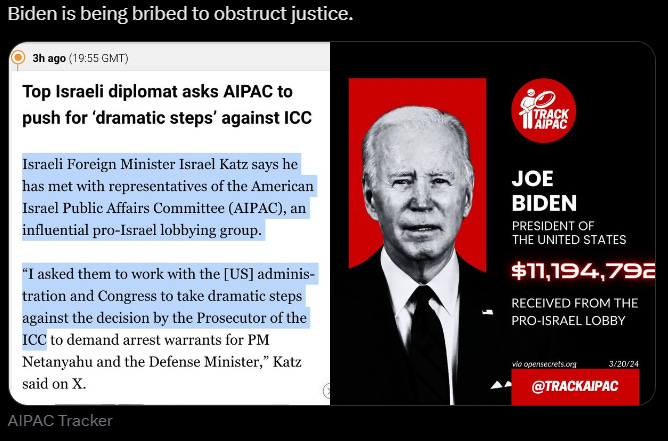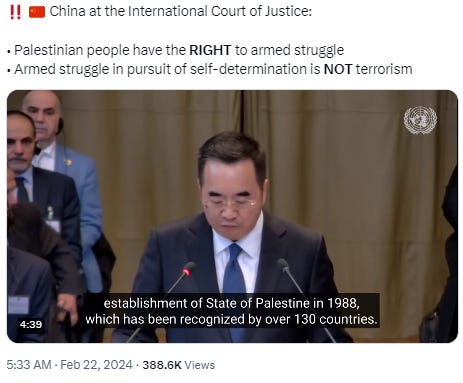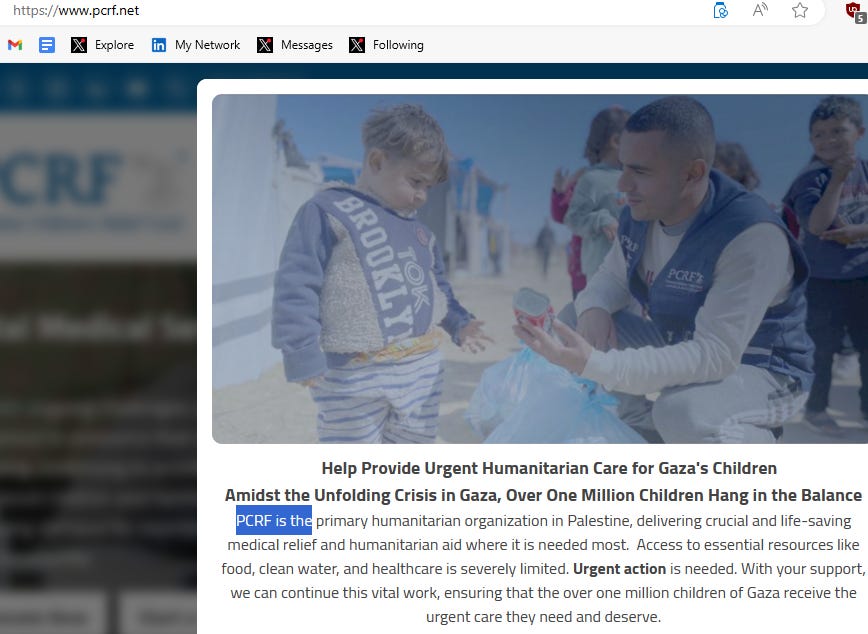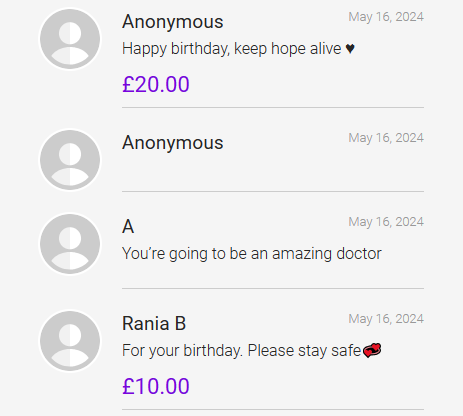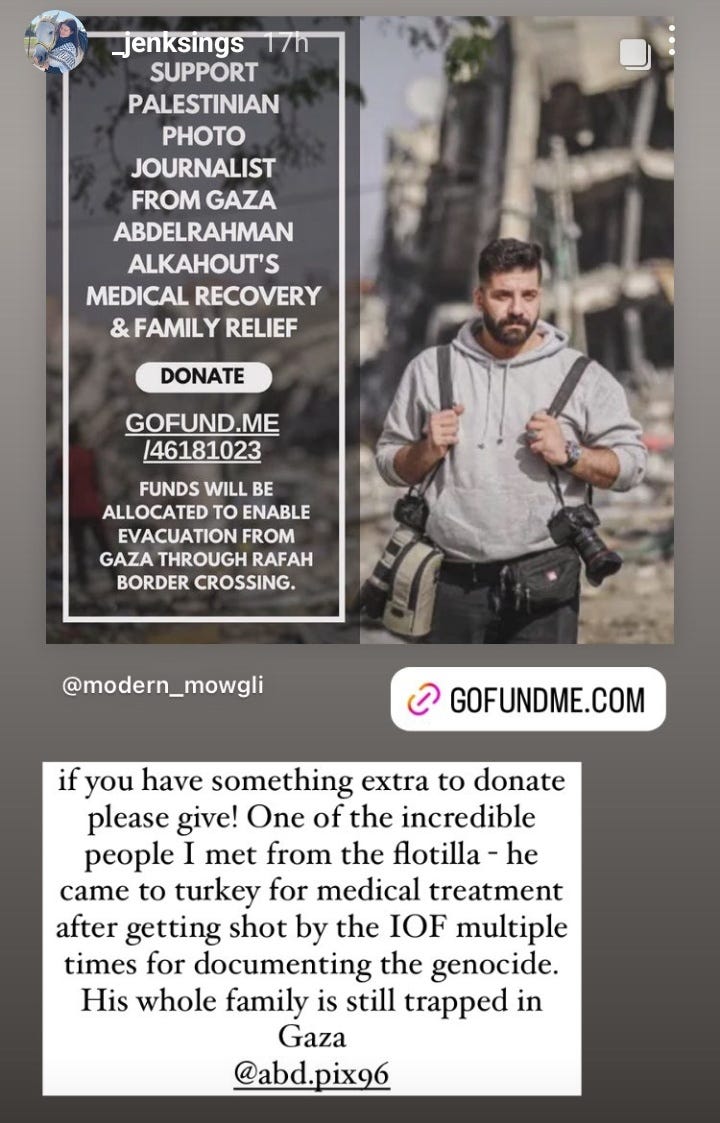[Anas ‘Andy’ Shallal and Annelle Sheline, at Busboys and Poets around 6pm NYC, April 9th / Eid el Fitr or Idul Fitri 9am Denpasar Indonesia, April 10th. Anas ‘Andy’ Shallal is owner, founder Busboys and Poets. Photo by Jennifer Koonings PMHNP, MS, MS, NYSAFE
from codepink, around 2 hours after her release (after) disrupt USAID Samantha Power. At least 13-14 hours after talkshow Anas ‘Andy’ Shallal and Annelle Sheline, employee of USAID, 21 years working just for USAID [detail in his linkedin], Jacob Toukhy, killed by Israel, and even in official statement by USAID, Samantha Power decide to not mentioned Israel]
"Whatever credibility the United States had as an advocate for human rights has almost entirely vanished since the war began," Annelle Sheline wrote in late March in an op-ed explaining why she had just resigned from the State Department in protest of the Biden administration's unconditional support for Israel's assault on Gaza. Also temporary froze her linkedin [but now reopen again, as of recheck June 1st, 6.31am DC]. Sheline served for a year as a foreign affairs officer in the Office of Near Eastern Affairs in the Department of State's Bureau of Democracy, Human Rights and Labor, where she worked on promoting human rights in the Middle East and North Africa.
ps: after [re]open again her linkedin, ‘the similar profiles’ also multiple people who resign from Biden administration
Her resignation at the time was the most significant over the Biden administration's Gaza policy since the departure of Josh Paul
, a senior State Department official who resigned in October in protest of U.S. arms transfers to Israel. (Paul is now a senior adviser at DAWN.) With two more public resignations this week, nine officials have now publicly quit the Biden administration in protest of its ongoing support for Israel's war in Gaza.List of resignation:
Alexander Smith
Stacy Gilbert
Hala Rharrit
Annelle Sheline
Tariq Habash
Harrison Mann
Lily Greenberg Call
Agnieszka Sykes
and again, first ever, is Josh Paul Josh Paul
Sheline, who has a PhD in political science from George Washington University, is a non-resident fellow at Rice University's Baker Institute for Public Policy and the Arab Center, in Washington, where she is also a visiting scholar at Georgetown University. Her research focuses on religious authority in the Middle East, the topic of a book manuscript she is currently completing.
She was previously a research fellow at the Quincy Institute. Both GWU and Georgetown part of ‘club of encampments’, [so far] 211 encampments in US soil and 121 outside US. TIME Magazine [collaboration with multiple student outlets, one of them The GW HATCHET], with stunning cover, use moment at GWU for edition 4 weeks ago, with title ‘CAMPUS UPRISING’ —- and in arabic can translate to be ‘INTIFADA [Uprising]. The photo by James Schaap form The GW HATCHET
In an interview with Democracy in Exile, Sheline discusses in more detail why she resigned from the State Department, what role human rights really plays in U.S. foreign policy, and the costs to U.S. standing around the world from the Biden administration's refusal to change course over Gaza. "The U.S. foreign policy establishment is somewhat blind to how the rest of the world is turning away from the United States and no longer sees the U.S. as a leader," she says.
The following transcript has been edited lightly for length and clarity.
What I witnessed inside the State Department reaffirmed that human rights are not, in fact, central to American foreign policy, not that anyone was necessarily under the impression they were.
- ANNELLE SHELINE
You told CNN that as a representative of a government directly enabling what the International Court of Justice has said could be a genocide in Gaza, your work in the State Department on human rights had become almost impossible. How has the situation changed since then regarding the Biden administration's response to the humanitarian crisis in Gaza?
Unfortunately, we haven't seen a real significant shift in what the administration is doing. In relatively recent memory, the administration announced that it would pause one shipment of weapons, which was met with great fanfare. And yet, quite soon after that, the administration also announced an additional billion dollars in weapons for Israel. So, although it is significant that one shipment was paused, it is still so minor in the vast array of support—material support, rhetorical support, legal support. In general, there has been almost no shift in that initial expression of support from the United States for Israel in the aftermath of Oct. 7, which was understandable given what Israel had just experienced.
But I would counter that, given the intervening months and months of atrocious and illegal behavior by the Israeli military, it is long past time for the U.S. administration to take a stance to reject what Israel has been doing, and to hold them accountable for the ways in which they're violating the Geneva Conventions and violating American laws. It's really unconscionable that we have yet to see a more significant shift in the U.S. administration's policies.
The U.S. government has lashed out against the International Court of Justice's provisional measures to Israel to abide by the Genocide Convention and now against the International Criminal Court's application for arrest warrants against Netanyahu and Gallant, undermining two major international legal bodies that many human rights defenders worldwide hope can hold rights violators accountable. What are the implications of such an approach for advancing human rights in general?
It's been really shocking to see the ways in which the president and other members of the administration have tried to delegitimize these two crucial institutions that the United States helped to establish in the aftermath of World War II to try to prevent similar war crimes as occurred during that conflict.
I think it is particularly shocking given the way that this administration came in pledging to reestablish American credibility on the international stage and participation in such key international institutions, in contrast to what the Trump administration had done, which was to openly flout such institutions. So it is particularly hypocritical for this administration to call into question these institutions functioning in the way that they were designed to function.
I really do fear for the implications this will have and is already having for U.S. credibility—to advocate for human rights and as a proponent of these institutions. We heard the U.S. government calling for Putin to be held accountable for his crimes over the invasion of Ukraine and various other crimes.
The rank hypocrisy in wanting to use these institutions to go after what are perceived as American enemies, and then to completely delegitimize them, when they tried to do the same thing for those that are perceived as friends.
One additional point here on the issue of human rights, I do think it is crucial to keep in mind that American credibility as a proponent of human rights was already in tatters long before Oct. 7. This reflects lack of accountability for America's conduct in the global "War on Terror," and particularly the invasion of Iraq.
But what I myself witnessed inside the State Department reaffirmed the fact that human rights are not, in fact, central to American foreign policy, not that anyone was necessarily under the impression that they were. But again, this administration had come in making such statements and did things like rejoined the Human Rights Council at the U.N. that the Trump administration had withdrawn from. I just want to be clear that, although the aftermath of Oct. 7 has undermined American credibility on these issues, it's not as if the U.S. was coming from a particularly credible place before that.
How was working for the State Department's human rights office before and after the start of the war in Gaza? Did anything change? How was your relationship with the senior State Department offices?
It certainly changed. Although human rights is not the first agenda item, really, in almost any of America's bilateral relationships—although it is used as a cudgel against actors like Iran or Syria or China, or others that are seen as American adversaries—the U.S. still does bring up human rights issues with key interlocutors. Although it's not the first item on the agenda, it is usually one of the items on the agenda. I certainly want to give credit for the important work that my former office does on that front.
People work very hard to try to make sure that when the U.S. government is meeting with the Egyptian government or any of these various governments, human rights concerns are mentioned and emphasized.
It was very easy, even before Oct. 7, for the person on the other side of the table—the Egyptian government official or Moroccan or Saudi official or whomever—to point to the ways that the U.S. also abuses human rights. But that became so much more of the dynamic after Oct. 7. Previously, government officials might perhaps mention the invasion of Iraq.
That's, at this point, 20 years old. And this administration could instead try to point to the ways that it has tried to highlight human rights. But then, in the aftermath of Oct. 7, that really became just extremely difficult—to try to, with a straight face, argue that this administration is prioritizing human rights.
What are the ways and mechanisms within the State Department that allow offices focused on human rights to voice their concerns and policy recommendations to senior officials, including the Secretary of State?
On the issue of Gaza, the dissent channel has gotten attention. I signed two different dissent cables and co-authored a dissent cable. There is certainly that sort of institutional mechanism by which State Department employees can register dissent to any number of policies, and have done so since that was implemented in the context of the Vietnam War.
held pro-palestine events as kite-flying. Kite - flying to be a new symbol represent Palestine after Refaat Alareer killed by Israel, as his poem, IF I MUST DIE, mentioned ‘kite.’ As posted, one of [by my screenshot compilation] 24th version of Vietnamese / tieng viet language - translation IF I MUST DIE. Currently I compile - integrate 270, try to be a book under publising.
But there are other mechanisms. My office tries to make sure human rights points are brought to the fore when engaging with officials from these various governments. The Human Rights Reports themselves [the annual Country Reports on Human Rights Practices], our office is responsible for producing those. I've been a little bit disappointed that there hasn't been more attention given to the Human Rights Reports that did just come out for Israel, as well as the Palestinian territories—because those do document the many, many human rights abuses that have taken place in all of 2023 committed by Israel. The fact that the State Department did allow that to come out speaks to the willingness to acknowledge officially what's happening on the ground.
Unfortunately, it just hasn't really gotten as much attention as I think it should, in part, because at the same time that you have this official and very long State Department report come out, you also have things like the NSM-20. [National Security Memorandum 20 found it was "reasonable to assess" that Israel had used U.S. weapons in Gaza in a way that was "inconsistent" with international humanitarian law, but that there was not enough evidence to link specific U.S.-supplied weapons to violations. The report also stated that the State Department did not "currently assess that the Israeli government is prohibiting or otherwise restricting the transport or delivery of U.S. humanitarian assistance" in Gaza.] Or other official and more high-profile documents, or just statements by the Secretary or others who come out and say: Well, no, we have not been able to determine various human rights abuses.
But again, I would encourage people to not ignore the Human Rights Report, because there's a lot there.
Is it fair to say there is a significant gap between the experts at the State Department and other departments and the senior officials, such as the Secretary of State and political appointees, regarding policies like those concerning Israel?
It very much depends on the individual. There are certainly experts on the region, in the State Department, who support this policy. Still, in my experience, there are many, many more, who saw this unconditional U.S. support for Israel first of all as devastating for the people inside Gaza, but also as very detrimental to U.S. interests. Concerns about U.S. standing, concerns about terrorism, concerns about why was it that it seemed that this support for Israel was considered more important and deserved greater prioritization than all these other key policy objectives that the administration had laid out for itself, including competition with China or climate change or human rights? There are many people inside State who know the region well, and who have been trying to communicate with the more senior leadership.
All the aspects and facets of how this policy is the wrong decision are making things much worse in a region that is already struggling with many different challenges. I would say that, based on conversations with some relatively senior officials inside State, including political appointees, there are those who recognize that as well. But again, this policy is set at the very top.
This is what Biden wants. And even if Secretary Blinken were to disagree—not that he necessarily does disagree—but even if he were to perhaps be in favor of rethinking some of these policies, I don't know that he would be able to get Biden to shift here. I'm not saying that I know Blinken's stance on this. But I think sometimes he is sort of held up as having a lot of power here, and I think in the end, it really does go back to Biden.
Eight days before Oct. 7, National Security Adviser Jake Sullivan said: "The Middle East region is quieter today than it has been in two decades." Why do you think that type of viewpoint prevailed at the top of the top levels of the Biden administration?
In fairness to Jake Sullivan, he was not alone in that perspective.
I think many people—analysts and journalists and experts included—had gotten sort of lulled into seeing the question of Palestine as no longer front and center for many Arab publics, especially from the fact that we saw the Abraham Accords, four different Arab countries adopting normalized relations with Israel, and there was not the appearance of significant backlash.
Although I do think, especially in somewhere like Morocco, you have a big divide between what the palace wants, and what the ordinary public wants. There was still this sense that the question of Palestinian liberation was no longer as central, and that young people in the region were no longer as motivated by it.
But now the war on Gaza been experienced firsthand by people watching absolute horror, every moment of the day. This also speaks to the generational divide we see here [in the United States], young people expressing support for Palestinian liberation in a way that really defies expectations. I don't think Jake Sullivan was alone in thinking that things were relatively quiet in the Middle East and on this issue in particular. I would also say that in my own office in the State Department, although 2023 had already been the deadliest year for Palestinians in many years, it was still just kind of this backdrop of daily violence. It wasn't seen as a crisis. It was just seen as a reflection of the extremely right-wing government in power in Israel, just sort of an unfortunate reality, similar to how the ongoing violence in Syria just sort of happens as part of the background.
What was the tipping point when you decided to resign? Was there a specific moment when you thought, I can't continue like this anymore? Before reaching that decision, what steps did you take to voice your concerns with your colleagues?
This question comes up a lot. I think in my case, though, there wasn't one particular tipping point where I said: I've had it. I do think it was more of this slow realization that I just no longer wanted to have to walk in the door. That felt complicit, even though I wasn't working on Israel. Palestine was not one of the countries in my portfolio, but it did very much dominate the work of the State Department. There were emails and cables, and it was taking up a lot of bandwidth, as it should. But it was very present, also in the work that our office was trying to do, advocating for human rights elsewhere in the region.
But in terms of what I did, I co-authored a dissent cable and I signed two other dissent cables. I raised concerns, along with many other colleagues who know the region quite well and know the ways that this is undermining so much of what the U.S. is trying to do, and so many different aspects of the work of the U.S. government and State Department abroad. It's really just so maddening that no one is being listened to.
But the timing of my resignation partly reflected the Human Rights Reports that I wanted to get my team through. I didn't want to leave what is already an office where people are working extremely hard and cover a lot of different countries. I wanted to make sure that work had been done for the year. And also, I owed the government a year as part of a fellowship. So I didn't want, after I went public, critics to be able to say: Well, you didn't even complete your obligation to the U.S. government. I wanted to be able to say, I had this obligation, which I fulfilled. After the year, exactly 365 days, I was out.
The U.S. foreign policy establishment is somewhat blind to how the rest of the world is turning away from the United States and no longer sees the U.S. as a leader.
- ANNELLE SHELINE
Do you think there are people within the administration, across different departments, who believe their actions might make them complicit in what is happening in Gaza today? This could include everyone from lawyers to those writing memos and other documents.
Certainly. This came up in the context of U.S. support for the Saudi war on Yemen. I think part of why we did start to see a shift there was a concern that the U.S. could be held legally accountable for the support it was providing for what the Saudi military was doing in Yemen. The same applies here, knowing that Israel could not continue to conduct its military operations without U.S. support. And the scale of the support that the United States provides is so huge.
This wasn't really your question, but it also gets to these questions of end-use monitoring, in trying to figure out what American weapons are involved in various attacks and the concerns being raised about indiscriminate use of force and targeting civilians. That's all so blatantly obvious that it's happening. And yet the State Department has continued to say that cannot be ascertained. Part of the cover there has to do with, in some ways, just the scope of what's provided.
It is, in fact, difficult to kind of nail down specifically—this weapon, we sent on this date, here's where it was used. And yet, at the same time, you do have groups that have come out and said, for example: Here's the serial number on this bomb that just destroyed a whole apartment building in Jabalia. It's not impossible to figure it out.
But to go back to your question, yes, absolutely. It's possible that these efforts to try to delegitimize the ICJ and ICC do reflect some of these underlying concerns that well, what if they come after American officials next?
You have said that President Biden has leverage that he can use to stop the war immediately. Can you tell us more about why you believe that?
Israel cannot conduct this war without U.S. help. Just all the different forms of help the U.S. provides, but in particular, the material weapons themselves. We've also seen in the past where U.S. presidents did step in and tell the Israeli leadership: Alright, that's enough.
We saw Reagan do that in the Israeli assault on Lebanon in the 1980s. And I do wonder, just from a political standpoint, why it is that we continue to have media coverage of how Biden is unhappy or the U.S. administration really wants Netanyahu to change.
But we continue to see no accountability, or no actual use of leverage to make sure that happens. The result is Biden and the U.S. end up looking extremely weak, which is not something that the oldest American president, who already is dealing with concerns about his age and ability to do the job—to reinforce an image of him as weak is politically the last thing probably his campaign wants him to do right now. It seems that the strategy is this is a PR issue for Americans and the administration wants it to look as if they are unhappy with what's happening and to let Americans know: No, we were concerned too. But to not actually change anything.
But if they want, if he wants, he can stop the war today.
Yes. I mean, if he were to end all U.S. support and say, Look, we're going to apply U.S. law here, which under Section 620I of the Foreign Assistance Act would require that. Because Israel is blocking American humanitarian aid, they are no longer eligible to receive security assistance. That would cut off all weapons to Israel. If that were to actually happen, I'm sure it would be contested. And we'd have to get into the ways that Congress has required the U.S. to support Israel. But again, Biden could still do that, and then deal with a legal fight in the aftermath.
The point is, he could end the weapons and cut off the flow of money.
Israel would still have massive amounts of weapons, but then suddenly, they would be in this position of needing to reconsider how they were using them—making sure that they had enough as deterrence against an attack from Hezbollah, for example, or Iran. Although at the same time, I feel like that threat is often highlighted in ways that sort of defy the reality of how both Hezbollah and Iran have demonstrated pretty significant restraint, in demonstrating that they are not actually that eager to get into a war with Israel. This notion that they're just frothing at the mouth to go after Israel is not borne out by their behavior. Israel could continue to drop bombs that it has, but again, it would very quickly run out. The pace at which they have been dropping bombs is such that it is not sustainable without these constant reinfusions of weapons from the U.S., which is what we've seen. So yes, to answer your question, if Biden wanted to, he could. He could grind all this to a halt, because Israel would be forced to reevaluate the behaviors it's been engaging in.

You mentioned that the Biden administration recently paused a single shipment of weapons to Israel but then proceeded with another $1 billion shipment. Why do you think they made that decision? And what impact do these actions have, if any?
I think that they paused the one shipment as a symbolic gesture, largely in response to the fact that Biden had tried to be clear about establishing a red line about a ground invasion of Rafah. And yet, the mixed messages to then allow to move forward another billion-dollar shipment. Again, if I were Bibi, I think I would interpret that as Biden trying to sort of mollify critics rather than actually intend to be enforcing this supposed red line. In general, the administration has viewed a lot of this as a PR issue—that they need to just try to manage how Americans are seeing it, which they've openly acknowledged, in that Mitt Romney interview. [In a recent forum with Secretary of State Antony Blinken, Romney said support for a ban on TikTok was linked to the "overwhelming" volume of "mentions of Palestinians" on the social media platform.]
I still hold out hope that maybe the administration will shift here. But unfortunately, there's recent reporting we've seen about the billionaire donor class that does continue to support this unconditional aid for Israel.
Medea Benjamin, Co Founder
Biden has received huge amounts of money from the Israel lobby over his very long career, and I think he continues to see support for Israel as just politically the right or the strategic move. I think he's failing to understand the ways in which the American public has shifted here. And I guess he would rather continue to side with the donors than the American people.
Are there many people within the administration, particularly at the State Department, who believe that Israel is committing genocide in Gaza?
That's really hard to say because I only knew a small number of people out of what's a very large bureaucracy. I do think people would probably be cautious about using that word. But at the same time, I think that there is not so much contention about the ways that Israeli officials and members of the Israeli public have articulated genocidal intent, especially in the immediate aftermath of Oct. 7. Statements around the intentional use of starvation as a weapon, imposing the complete blockade, that they cut off electricity, they cut off the water. And that is continuing to happen. Now, just recently, with the ways in which Israel is also trying to prevent Al Jazeera or the Associated Press from documenting what's happening inside Gaza—which again for me, and for many, I think, just raises more concerns about what they're planning with Rafah.
At this point, I've been out of the State Department for almost two months, so I can't say if maybe things have shifted in the intervening weeks since I left. But I do think for those who are familiar with what's happening and what the word genocide means, I think they would agree that is what's happening.
Can you share details of your conversation with North African counterparts before you left, such as which countries raised Gaza in your conversations? Will the U.S. government listen to those voices?
When I left, I was covering Tunisia, Morocco and Algeria. Members of civil society from all three of those countries raised the issue of Gaza. Not to mention, I had previously also been working on Qatar and Oman.
In Oman, we saw really unprecedented protests happening in opposition to the assault on Gaza. Oman is a country that is not known typically for having sustained protests in that way. So, it was certainly an issue that people brought up. Unfortunately, I don't think it was taken particularly seriously. Similar to all the other ways that this conflict has been raised as an issue inside the State Department, it's been ignored, whether these are voices coming from the region or coming from inside the State Department itself. The top leadership is not interested in hearing them.
What do you think the long-term implications will be for the countries you worked in, such as Tunisia, Morocco and Algeria, given U.S. support for Israel in its assault on Gaza? Has the Global South taken a different direction than the U.S. in the past few months? It seems that the U.S. has essentially ignored what people in other countries think and believe.
That's a big question. I think if things continue, which it's likely they will, especially if Trump comes into power, I don't anticipate that he'll be any better and probably will be even worse on this question. And alternatively, if Biden wins reelection, I expect he will probably continue to pursue similar policies as what we're seeing currently. So, I think we're just going to further undermine efforts by the United States to try to be seen as a leader again on these issues that do require international cooperation, like climate change, where the U.S. sees itself as a leader. But other countries won't look to the United States as having any kind of moral authority.
In general, I do think that the U.S. foreign policy establishment is somewhat blind to how the rest of the world is turning away from the United States and no longer sees the U.S. as a leader. This didn't just start with Oct, 7, but it certainly was greatly accelerated by that and what's come after.
I don't think that the U.S.—this administration or other administrations—know how to deal with that loss of power and prestige. Things like the so-called Saudi-Israel normalization deal, if it ends up materializing, or even just the efforts to try to enact it, do reflect this preference on the part of this administration to try to maintain the status quo of the U.S. as the preeminent military power in the region—wanting to require Saudi Arabia to not buy from China, for example.
It's this fear of China or Russia or other players on this multipolar world order to be able to replace or more effectively compete with the U.S. in the Middle East. They're sort of kidding themselves to think that just by getting Israel and Saudi Arabia to sign this agreement, and cementing the U.S. security commitment to both of these countries, that that will somehow prevent this global shift in power, which is already happening, and will continue to happen regardless.
It has become common in Congress to criticize the Biden administration as being weak on Israel. Even those who previously had no specific stance on Israel are now staunch supporters of unconditional military support for Israel, disregarding U.S. and international laws. Do you think this leaves fewer opportunities for the American people to understand what is actually happening in Gaza and determine the best course of action?
Absolutely. I'm extremely concerned, in particular, by efforts in Congress to try to legislate around this question of antisemitism, to characterize any criticism of the policy decisions of the government of Israel as equating that with antisemitism, which is absolute nonsense. And as you mentioned, just the ways that we've seen members of Congress who maybe didn't used to have a particular perspective on this issue, suddenly coming out as these rabid supporters for this unconditional aid for Israel. I definitely agree that this is obfuscating what is actually happening.
For an American who's just getting their news from mainstream sources and maybe half paying attention to what's happening in Congress, I absolutely agree that it would be understandable that they don't understand that Israel is conducting a genocide against Palestinians in Gaza.
I worry about this, as well for the broader implications, because antisemitism remains a real problem—actual antisemitism, targeting Jewish people for their faith. We saw this during the Trump administration, much more widely, and actual acts of violence. I worry a lot about what will happen if we do have a second Trump term and people who are actually motivated by hatred of Jews are mainstreamed again in a way that they were in the first Trump administration. It remains a real problem.
It is making it difficult to combat that problem when any sort of criticism of Israel is lumped under this concept of antisemitism, because then it just becomes something that no one's going to take seriously. When it is legislated in this extremely broad way, going after what should be a legitimate criticism of a government's policies that are illegal under American and international law, these are questions freedom of expression and academic freedom. All of these values that the United States claims to hold, we're being made hypocrites as a result of this unconditional support for Israel.
What was the reaction of your family and friends when you resigned from the State Department?
My family supported me. My family had witnessed really the agony of thinking how difficult it was to continue to work at State in this context. I think that they recognized that it was something I really needed to do. And I think they understood why I was doing it.
I had expected a lot more sort of hate mail from random people on the internet, and I tried to do what I could to sort of preserve some digital security, after I resigned. I protected all my tweets, initially. Now, I'm sort of back on Twitter, such as it is. I had gotten certain advice about how to try to protect myself online. But what I found, in fact, was that other than a handful of comments, and some of the media coverage that was less than supportive, to say the least, I was really surprised that I didn't get more hate mail. I do think that this speaks to a shift in American public opinion on this issue.
=======
footage by
, multiple nurses in DC, after humanitarian duty in Gaza.
Please keep donating to [1] PCRF / Palestine Children’s Relief Fund or [2] Freedom Flotilla.
As PCRF pictures by Dr Rajha in Gaza, Ariana Grande - Butera, and Jennifer Koonings PMHNP, MS, MS, NYSAFE part of CODEPINK Alert Jen
Unlike Israeli and pro zionist student [very easy] get a money [thanks for multiple billionaire], contrary, Palestinian very hard to get a money [like encampments across the world]. Link attached by Jennifer Koonings PMHNP, MS, MS, NYSAFE is Nagham, same healthcare worker like Jennifer but in Palestine. 17 Days ago is Nagham’s birthday. Link to donate. Nagham is still alive after Rafah bombing 161 hours ago.
Link to help journalist Abdelrahman Alkahout, Reshare by Jennifer Koonings, PMHNP, MS, MS, NYSAFE. Abdelrahman is still alive after Rafah bombing 161 hours ago.







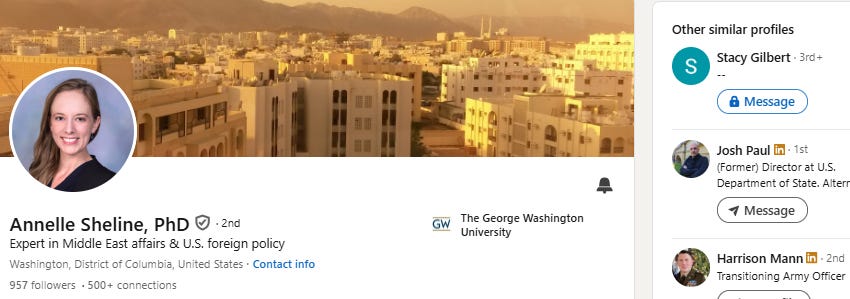

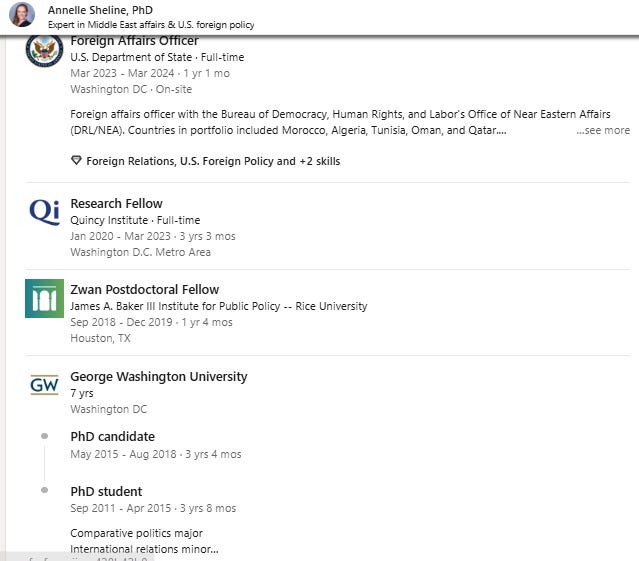

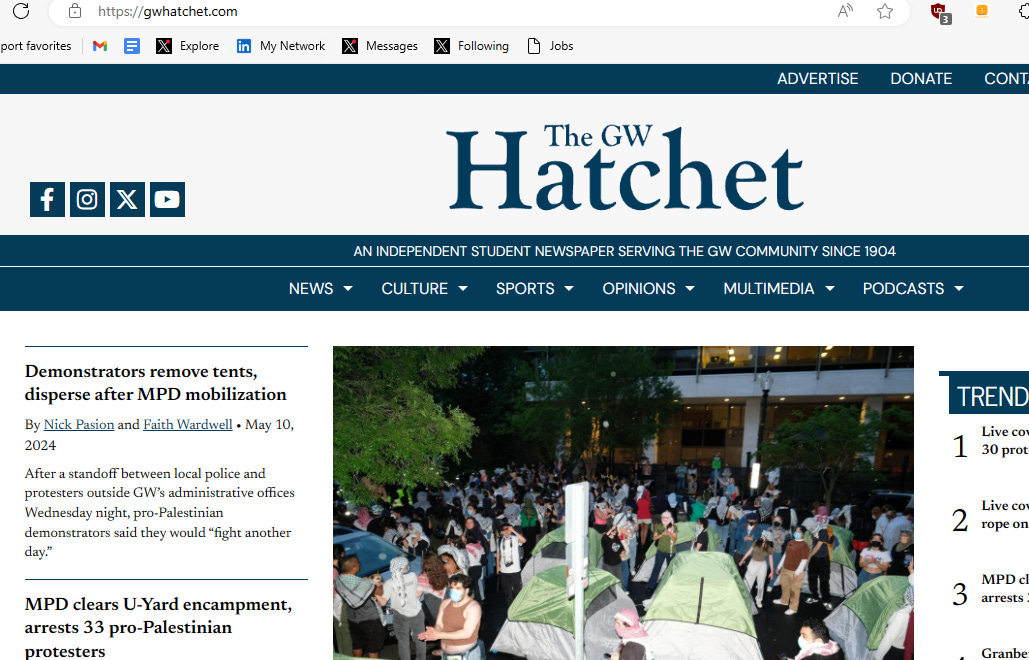

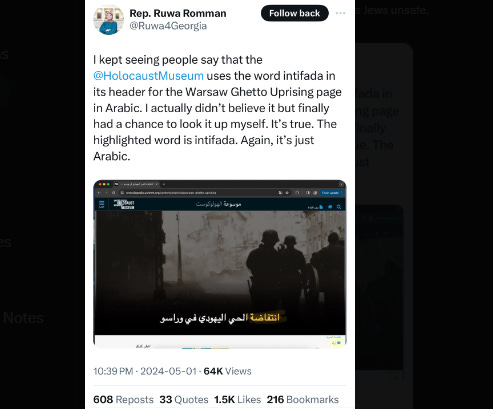

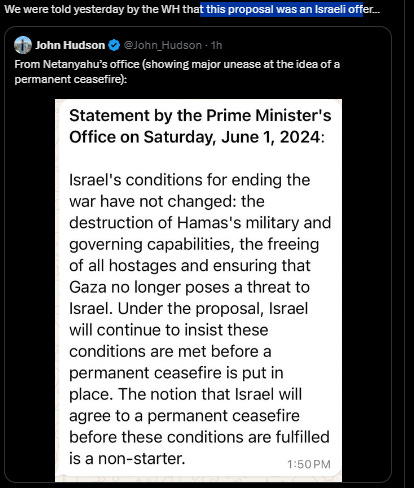


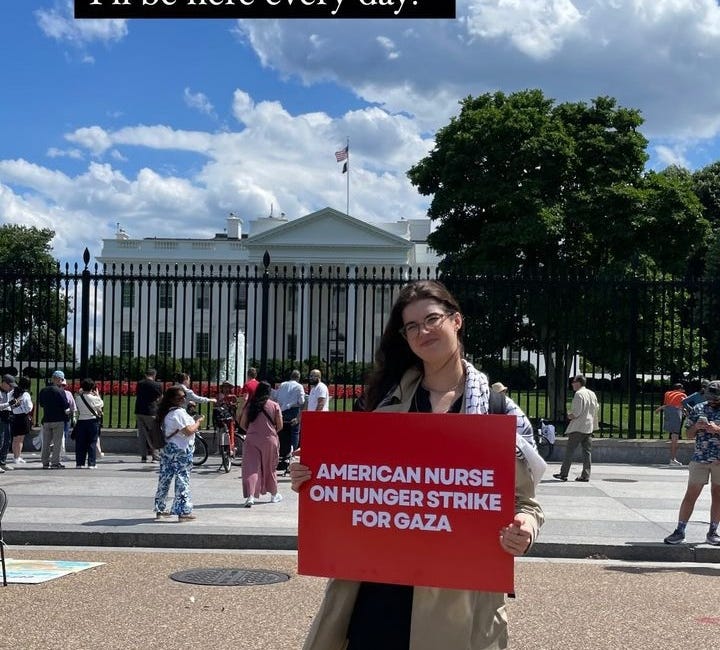

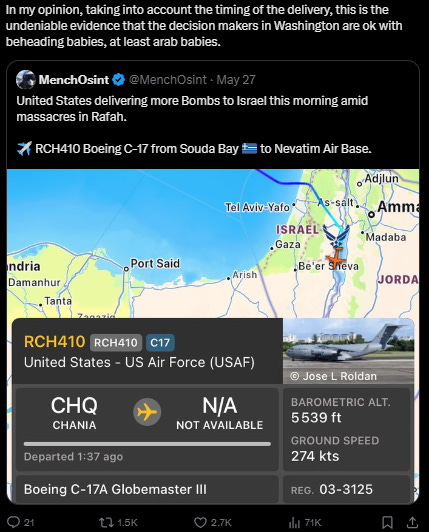
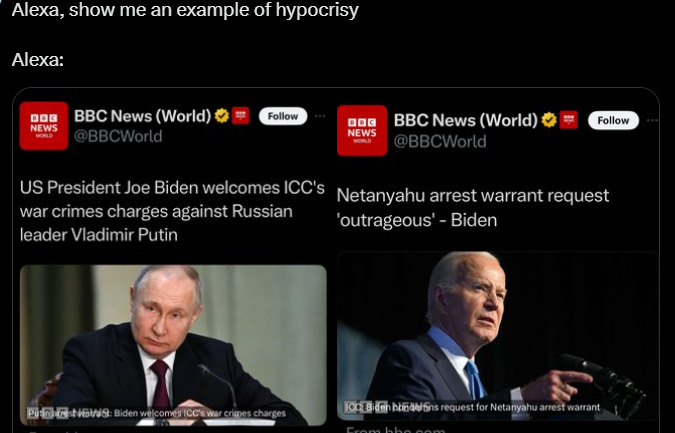
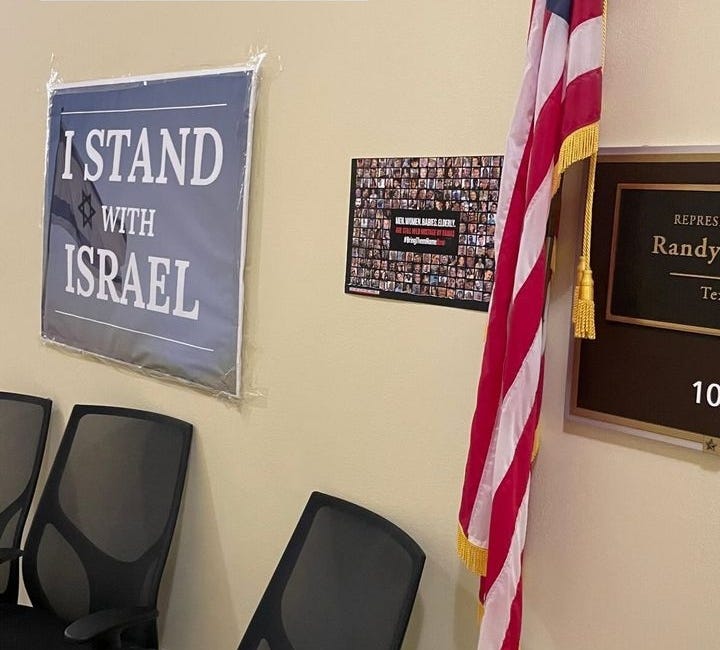
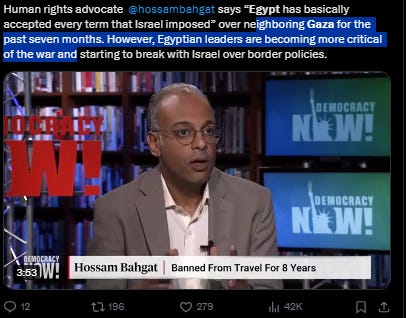
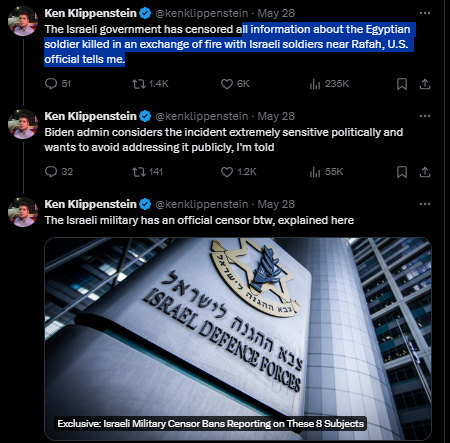
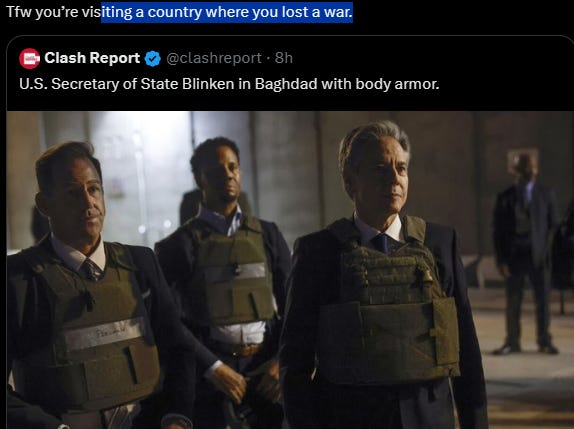
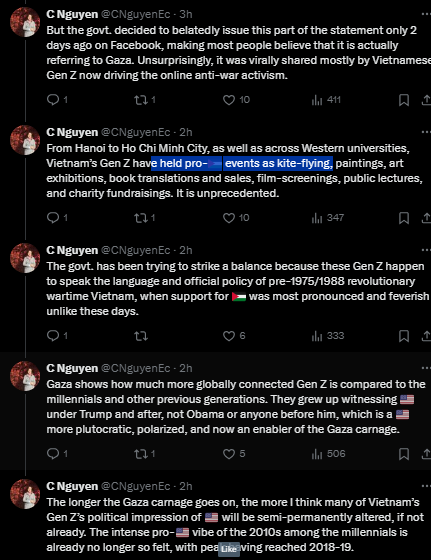

![[RENEW] 'Babel', 270 Languages IF I MUST DIE of Refaat [by 1400+ Translators, Socmed Users]](https://substackcdn.com/image/fetch/w_1300,h_650,c_fill,f_auto,q_auto:good,fl_progressive:steep,g_auto/https%3A%2F%2Fsubstack-post-media.s3.amazonaws.com%2Fpublic%2Fimages%2Fc25bd266-d4e2-4169-a5e4-e901227a8b0c_725x560.png)
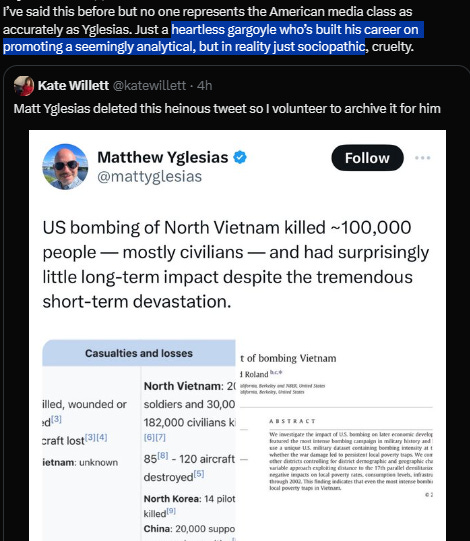
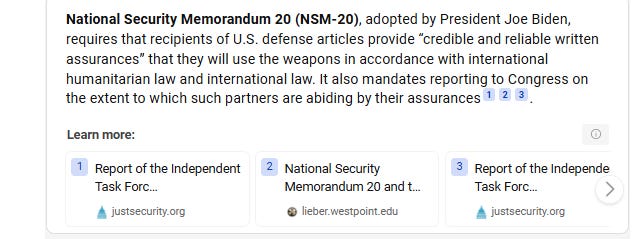
![Biden Purposefully Misleads Global Audience on Ceasefire - Hostage Deal. Fact that IDF Brig General Identified Killed Double Digit Israeli in Kibbutz [Use Merkava Tank, Not Gun]](https://substackcdn.com/image/fetch/w_1300,h_650,c_fill,f_auto,q_auto:good,fl_progressive:steep,g_auto/https%3A%2F%2Fsubstack-post-media.s3.amazonaws.com%2Fpublic%2Fimages%2Fa9407144-3f9c-442a-82bb-457d3480ceff_476x518.png)
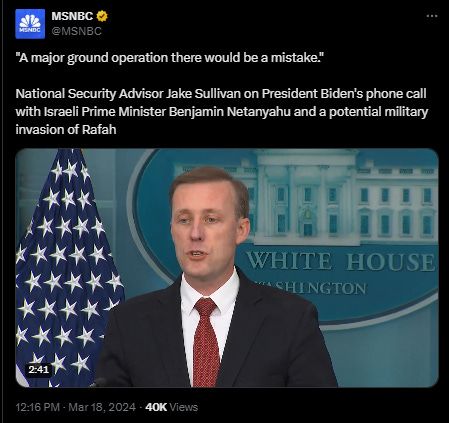
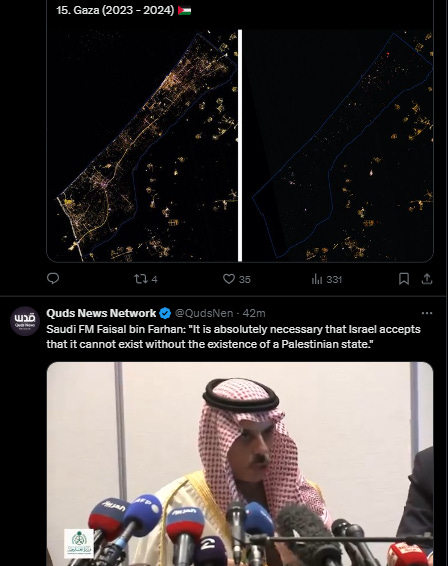


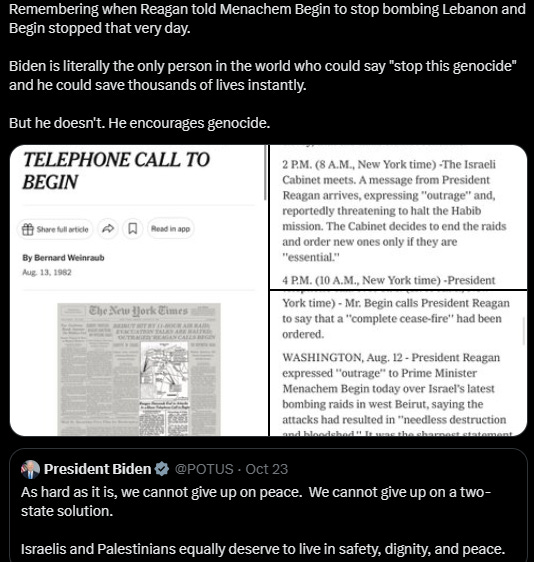

![Breaking: Biden 'Gaza Red Line' Remarks, 22 Hours After Nurse Hunger Strike [Initiative Codepink - Jennifer Koonings], After 70k Palestinian Killed [or 100k]](https://substackcdn.com/image/fetch/w_1300,h_650,c_fill,f_auto,q_auto:good,fl_progressive:steep,g_auto/https%3A%2F%2Fsubstack-post-media.s3.amazonaws.com%2Fpublic%2Fimages%2Fefbc4bc0-72bc-470a-a787-10a7f4c791aa_355x343.png)


